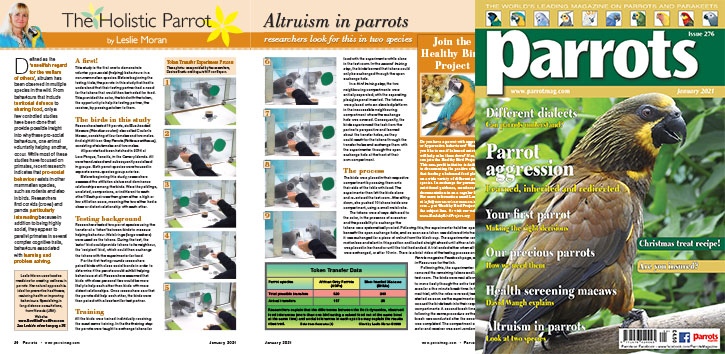
The Holistic Parrot by Leslie Moran
Defined as the ‘unselfish regard for the welfare of others’, altruism has been observed in multiple species in the wild. From behaviours that include territorial defence to sharing food, only a few controlled studies have been done that provide possible insight into why these pro-social behaviours, one animal voluntarily helping another, occur. While most of these studies have focused on primates, recent research indicates that pro-social behaviour exists in other mammalian species, such as rodents and also in birds. Researchers find corvids (crows) and parrots particularly interesting because in addition to being highly social, they appear to parallel primates in several complex cognitive traits, behaviours associated with learning and problem solving.
This study is the first one to demonstrate voluntary pro-social (helping) behaviours in a non-mammalian species. Before beginning the testing trials, the parrots in this study first had to understand that their testing partner had a need for the tokens that would then be traded for food. This provided the actor, the bird with the token, the opportunity to help its testing partner, the receiver, by passing a token to them.
Researchers tested 14 parrots, six Blue-headed Macaws (Primolius couloni) also called Coulon’s Macaw, consisting of four females and two males. And eight African Grey Parrots (Psittacus erithacus), consisting of six females and two males.
